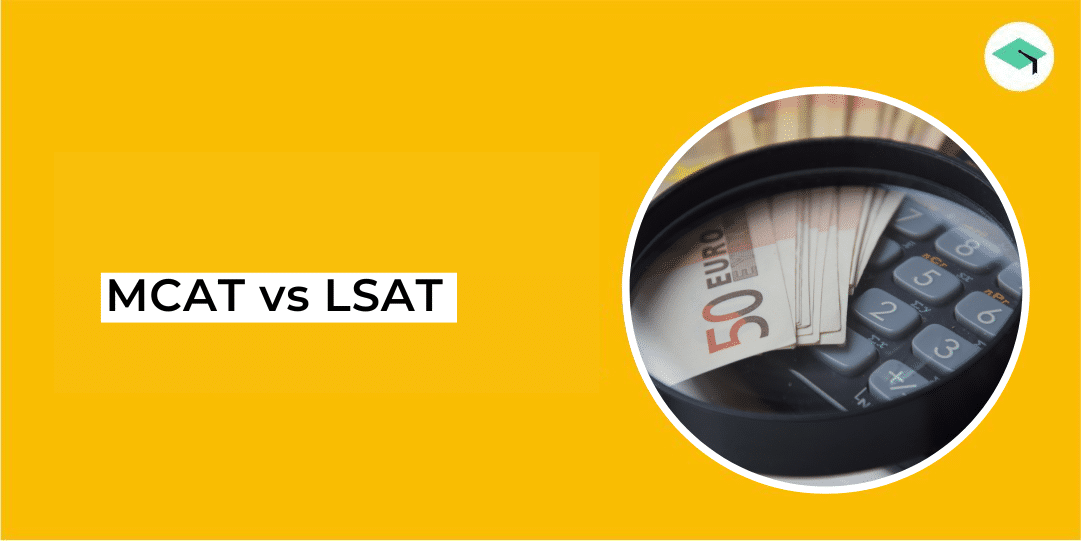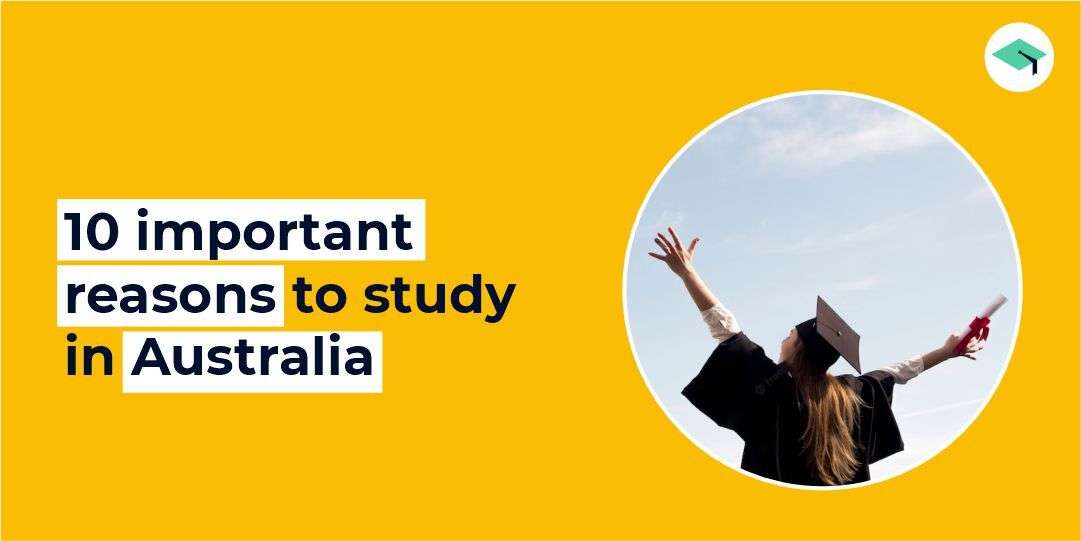A guide to professional study abroad: MCAT vs LSAT

So what do you do if you are enrolled in a medical degree in India and want to study abroad after MBBS? Or if you want to practice law in the United States?
The GRE is a broad general-purpose aptitude test that is accepted by a wide range of postgraduate programs.
However, if you want to study abroad for a professional degree like medicine or law, you will have to take specific aptitude tests for those disciplines.
MCAT vs LSAT
MCAT
The Medical College Admission Test is conducted by the Association of American Medical Colleges. It is a standardized computer-based test for admission into medical programs that test the aptitude of students who have already completed basic pre-medical training at the university level.
1. Eligibility
In order to be eligible for the MCAT, you have to be planning to apply to medical school and not currently be enrolled in any professional health courses.
These include MD programs, DO programs, and Podiatry or Veterinary medicine programs.
For Indian students looking to study abroad, if you are enrolled in or have graduated with an MBBS degree, you are eligible to sit for an MCAT.
If you don’t fulfill the above criteria, you may have to take special permission before sitting for the MCAT.
2. Format
Unlike the GRE and GMAT, the MCAT is not computer-adaptive. This means, the questions are standardized and do not get automatically adjusted to the difficulty level as you answer.
The MCAT has four sections: chemical and physical foundations of biological systems, critical analysis and reasoning skills, biological and biochemical foundations of living systems, and psychological social, and biological foundations of behaviors.
The exam tests students’ broad and specific knowledge of biology, chemistry, organic chemistry, physics, psychology, and sociology as well as critical reasoning, research methodology, and scientific reasoning and inquiry.
The entire test is around 7 and a half hours long, including optional breaks: a 10-minute break after each section and a 30-minute mid-exam break after the first two sections. Each section is 95 minutes long, except the critical reasoning section which is 90 minutes long.
There are also a few ‘void’ questions that are not scored but are used for experimental or research purposes. Additionally, there is an end-of-the-exam survey which is optional.
3. Scoring
The MCAT is scored on a scaled and equated scale of 118-132 with 125 being the median. Your raw scores will not be revealed on test day or mentioned on your score report. Candidates also receive a percentile score.
4. Validity
MCAT scores are accepted and required by all US medical schools and all Canadian medical schools. The scores are valid for three years from the date of taking the exam.
5. Registration and Fees
You can register for the MCAT through their website and book an appropriate test date and center according to the MCAT schedule.
If you register for the test at least 29 days before the date, you will be charged $320. This number is for Indian nationals looking to study abroad after MBBS.
MCAT Syllabus
- About physics, chemistry, and biology,
- Social demographics,
- About behavioral science,
- Critical reasoning,
- Problem-solving knowledge in the medical sciences
- Prevalent lifestyle trends,
- The role of a physician
How do I prepare for the MCAT?
- Try to understand what’s MCAT: Learn about the MCAT exam. It has MCQs, and it is a computer-based exam. This exam is for the medical school selection process.
- Think before selecting your undergraduate course:
Don’t overload yourself with too many science subjects. The MCAT itself has too many subjects to learn. Learn about humanities, accounting, and literature, which are going to help you in your MCAT preparations.
- Start your preparations as early as you can:
If you start early, you will have plenty of time to prepare for the exam. At least keep three months on your hand.
- Make a study schedule that suits you:
Prepare a timetable so that you can work accordingly.
- Take mock tests yourself:
After completing your preparations, take mock tests to prepare yourself more.
LSAT
The Law School Admission Test (LSAT) is administered by the Law School Admission Council (LSAC) for admissions to Juris Doctor (JD) and LLM programs in the USA, Canada, and some Australian universities.
The LSAC also conducts LSAT India which is for admission to LLM programs in certain law schools in India.
1. Eligibility
There are no specific criteria for taking the LSAT as determined by the LSAC. Legal degree-granting programs and law schools that accept the LSAT may have specific criteria.
However, most US law schools require an undergraduate degree in any discipline as a prerequisite for admissions.
Law schools in the US generally don’t prevent international students from applying to legal programs in the US. However, it is always a good idea to check the eligibility requirements of the program you are applying to before registering for the LSAT.
2. Format
The LSAT consists of five sections: logical reasoning, reading comprehension, analytical reasoning, writing sample, and an unscored experimental section that is indistinguishable from the rest.
The logical reasoning section asks students to analyze logical arguments to identify assumptions, alternate conclusions, errors, or logical omissions.
The reading comprehension section involves reading a particular passage and analyzing it to interpret meaning, draw inferences, determine the structure of the passage, etc.
It also often includes a comparative reading question that involves reading, analyzing, and comparing two passages. Analytical reasoning tests a candidate through ‘logic game’ based questions that test the candidate’s ability to analyze a range of possibilities within a given set of rules.
The writing sample involves writing an argumentative essay based on a given writing prompt. The unscored section consists of questions being used by the LSAC for experimental purposes and is not counted toward the final score.
However, it is indistinguishable from regular, scored sections. Any of the sections can be used for the experimental section
The LSAT is 3 hours long excluding an optional 15-minute break that is offered in between. Each individual section is 35 minutes long.
In light of COVID, the LSAC now offers the LSAT-Flex and LSAT-Writing. The LSAT-Flex is a 2-hour long, remote-proctored, at-home, computer-based test. This includes the logical reasoning, reading comprehension, and analytical reasoning sections.
The writing sample will need to be submitted by taking a separate remote proctored, at-home test, the LSAT-Writing. This is a 35-minute long test taken at a later date.
3. Scoring
The LSAT is a scaled, standardized test like the MCAT. Scores are distributed on a scale of 120-180. They also receive a percentile score.
4. Validity
LSAT scores are recognized and required by law schools across the USA, Canada, and some Australian universities. The scores are valid for 5 years following the date of taking the test.
5. Registration & Fees
Indian students looking to study abroad for legal studies can register for the LSAT through the LSAC website. You will be required to use your passport as an ID document for registration.
The basic fees for LSAT are $200 plus an additional fee of $195 and $45 for the Credential Assembly Service (CAS), and Law School Report respectively.
The Law School Report is a streamlined compilation of all your law school application documents like scorecards, transcripts, letters of recommendation, etc.
The CAS is a centralized service used by law schools to access the Law School Report. Extra charges may be levied for test date changes, score previews, etc.
FAQs
How hard is the LSAT exam?
It’s generally hard, but if you have done your preparations nicely, then you can pass it.
I study for just one month and clear the MCAT exam?
Studying just for 1 month is risky, but if you’re already good at science or the humanities, then you may clear the exam.
Is studying for 3 hours a day enough for the MCAT?
You can study 3-6 hours a day or whatever suits you for MCAT.
What is the lowest mark accepted in the MCAT exam?
If you score as low as 508, then you might get accepted.
Is it possible to study for the MCAT exam on my own?
Yes, you can study on your own if you think you can do it efficiently.
Conclusion
A professional degree is a great option for those who have specific goals that they want to commit to.
While degrees like law and medicine are very intensive, sometimes expensive and require a lot of hard work, they are equally rewarding.
If you are willing to put in the time and effort required for these degrees and entrances, you can look forward to a bright future!
Consult an expert advisor to get the right plan
recommended reading














